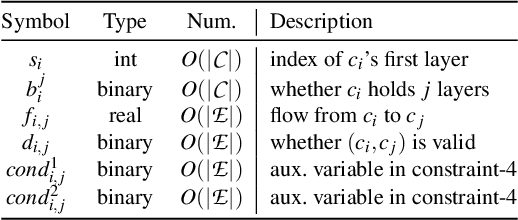Rashmi Vinayak
Helix: Distributed Serving of Large Language Models via Max-Flow on Heterogeneous GPUs
Jun 03, 2024



Abstract:This paper introduces Helix, a distributed system for high-throughput, low-latency large language model (LLM) serving on heterogeneous GPU clusters. A key idea behind Helix is to formulate inference computation of LLMs over heterogeneous GPUs and network connections as a max-flow problem for a directed, weighted graph, whose nodes represent GPU instances and edges capture both GPU and network heterogeneity through their capacities. Helix then uses a mixed integer linear programming (MILP) algorithm to discover highly optimized strategies to serve LLMs. This approach allows Helix to jointly optimize model placement and request scheduling, two highly entangled tasks in heterogeneous LLM serving. Our evaluation on several heterogeneous cluster settings ranging from 24 to 42 GPU nodes shows that Helix improves serving throughput by up to 2.7$\times$ and reduces prompting and decoding latency by up to 2.8$\times$ and 1.3$\times$, respectively, compared to best existing approaches.
SysML: The New Frontier of Machine Learning Systems
May 01, 2019Abstract:Machine learning (ML) techniques are enjoying rapidly increasing adoption. However, designing and implementing the systems that support ML models in real-world deployments remains a significant obstacle, in large part due to the radically different development and deployment profile of modern ML methods, and the range of practical concerns that come with broader adoption. We propose to foster a new systems machine learning research community at the intersection of the traditional systems and ML communities, focused on topics such as hardware systems for ML, software systems for ML, and ML optimized for metrics beyond predictive accuracy. To do this, we describe a new conference, SysML, that explicitly targets research at the intersection of systems and machine learning with a program committee split evenly between experts in systems and ML, and an explicit focus on topics at the intersection of the two.
 Add to Chrome
Add to Chrome Add to Firefox
Add to Firefox Add to Edge
Add to Edge